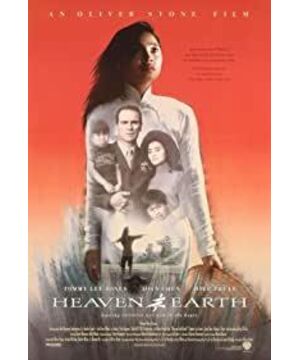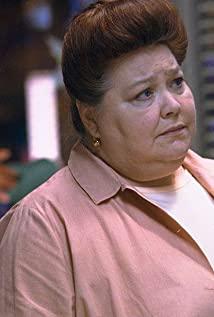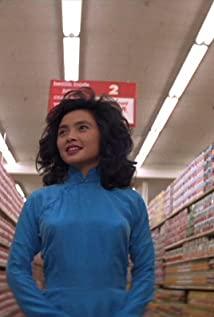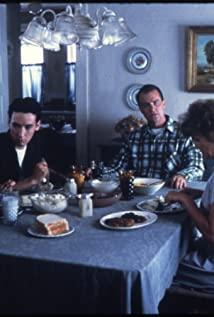Oliver Stone's "Vietnam War Trilogy" to "Born to Kill" has an obvious aesthetic style change. The director reflects on human nature and exposes the essence of war in the Vietnam War movies. He prefers long shots in audiovisual and real records of Vietnam. The cruel truth of the battlefield; in "Born to Kill", the director used postmodern collages, upside-down shots, scene switching where reality and fiction intersect, and rock music to form a confusing audio-visual style, showing Against the background of the rise of the Internet and the media, the anger, turmoil, and spiritual emptiness of the younger generation in the United States reveal the differentiation of the entire social class and the extreme sharpness of social contradictions, as well as the rise of feminism and existentialism.
The film language of the two films "Field Platoon" and "Born on the Fourth of July" is still dominated by the use of long shots, truly reproducing the destruction of the common people by the Vietnam War, the alienation of people by the war, and the alienation of people by their own countries and countries. The living conditions of American soldiers abandoned by their comrades. In the "Heaven and Earth" of the Vietnam War trilogy, Oliver Stone has a more obvious post-modernist style of creation. For example, when the war burns to a beautiful village in Vietnam, he sprays a column of fire into the blue sky. Performance, the director used the same method to express the heroine's dire life in the United States. When the heroine and his American husband had an argument, the husband who was alienated by the war aimed his gun at his wife, indicating the intensification of mutual contradictions. , and through hand-held photography, oblique composition and black and white images to express the shock and fear in his wife's heart. Then to "Born to Kill", the postmodern collage style is at a glance, the black and white and color pictures are intertwined, and the real time and space pictures and the news pictures are cross-edited, showing that technology and modern media are flooding people's lives and spiritual worlds; free shots Switching, hand-held photography and shaky footage show the restless and unbridled character of the characters.
Second, Oliver Stone's "Vietnam War Trilogy" has its own focus. First of all, starting from the first "Field Platoon", the director asked the audience to follow the perspective of recruit Taylor into the Vietnam battlefield. The process of Taylor revealing the truth of the war is the process of the audience understanding the brutal war. The director uses a realistic approach, and does not show too many scenes of war, but more shows the contradictions within the American army, the killing of each other by comrades and the American soldiers abandoned by the country. All these make Taylor constantly into self-doubt, doubting the authenticity and meaning of this war. No one knows what this war was about, but so many innocent people lost their lives. The director used a large number of killing shots to show the dead Vietnam, and then used the front and back shots to show the reflection of the American soldiers on this tragic situation in the world. The shaking shots showed the unstable mental state of the characters, which made their interior start from this. Divided, hatred between people prompted the internal cannibalism, showing the brutal side of human nature. Represented by Barnes, the loss of humanitarianism is most vividly displayed on him. Barnes burns, loots, and kills his fellow citizens; on the contrary, Elijah and Taylor, played by Willem Dafoe, become representatives of the humanitarian spirit, and Elijah prevents Barnes mutilated innocent villagers, showing that the two had completely different attitudes towards war, which gradually split the two, which led to the selfish Barnes' ruthless abandonment and killing of the good Ilya. But in the end, Tyler shot Barnes to death to avenge Elijah, which can also reflect the alienation of an American college student who voluntarily came to the Vietnam battlefield by the war, which also turned the proud American spirit into a bubble. It also reflects nihilistic patriotism. This is a painful reflection. The director gave the film enough realism. Ilya from the perspective of the helicopter was chased by the enemy's artillery fire, but still became a person abandoned by the country and his comrades in arms. This long shot has a very visual impact and reflects In view of the pain and chaos of the war, the center of the film actually becomes cannibalism among comrades in arms, rather than the contradiction between the United States and Vietnam, which is highly reflective.
Born on the Fourth of July is an adaptation of Oliver Stone based on the true experience of Marine Corps veteran Ron Covec. Compared with "Field Platoon", the film depicts relatively few war scenes, because the director focuses on the life of disabled soldiers and the change of Kovik's attitude towards the Vietnam War after his retirement, and still has to show the government's attitude. Hypocrisy and deception of the people. The war has brought people a nightmare, and made countless soldiers regret their lives for the rest of their lives. The director freed the characters from the unconscious state of being brainwashed by the government, thereby showing the collapse of national beliefs and the awakening of personal consciousness, and portrayed him as a hero to lash out against the hypocrisy of the entire social system. The damage to the individual in the Vietnam War also extended to the damage to the entire family. Kovik, who returned from the military, could not be recognized in his own family, nor could he be respected by the entire country. As he said in the movie: "I only ask to be treated as a human being", which made Kovek have deep self-doubt, and became reluctant to say anything about his Catholic mother, because God can't save him This person who was abandoned by the country and the nation, and this person just fought for the country and the nation. At the same time, it reflects that the government's lies have disillusioned the American spirit and shattered beliefs. Kovik has always been in a state of guilt. He cannot get rid of the nightmare brought to him by the war. Countless lives were wiped out on the battlefield, and comrades were killed by mistake. Mexico's "remnant group portrait". Let him shout: "Human rights war is fought overseas, but there is no human rights at home". The film revolves around Kovik's process of externalizing his emotions. The characters go from admiring war to hating war, to completely changing the concept of war, doubting the country's political environment, and finally throwing themselves into anti-war demonstrations. The portrayal of the inner activities caused by the external limb mutilation is very touching. "Field Platoon" focuses the camera on Saigon, showing the brutal war, but more of the torture of human nature; "Born on the Fourth of July" directly focuses on the American society, showing American social politics, democracy and civil rights People's livelihood is a reflection on the plot of the Vietnam War and a condemnation of the US government.
Finally, in "Heaven and Earth", the director changed his perspective, starting from the Vietnamese girl Li Li, showing the Vietnam War in the eyes of the invaders. At the beginning of the film, the director used poetic shots, accompanied by Kitaro's atmospheric and lengthy music to show the paradise-like Vietnamese village, showing the beautiful world of the East, in order to form a sharp contrast with the dilapidated homeland after the war. Like the first two films, the director did not emphasize the victory or defeat of the war, but instead showed the American and Vietnamese people who were suffering behind the war. By showing the key points in Li Li's life, the director expresses this tenacious and unyielding female character in the era of war and turmoil, and then captures the improvement of her social awareness and spiritual level. The director has rarely used long shots in this film, but is good at using sound-picture montage editing to show Vietnamese prostitutes lying on the streets, brutal and bloody punishments and the oppression of the lower-class people by the Vietnamese privileged class. The war in Vietnam is contrasted with the tranquility of the United States. The images depicting Vietnam are vague and dark, while the rural life in the United States is bright and warm. Civilization and barbarism, fraternity and cruelty are contrasted to the end. The director portrays the characters' successive situations and growing psychology, and leads us to feelings through pictures, and then leads us from feelings to thoughts. In the film, the director mostly uses panoramic photography to show the majestic atmosphere between the sky and the earth, the intoxicating greenery, the misty and rainy ancestral hall, the rolling hills in the distance, and the beautiful and quiet oriental home. The director uses black and white images to deal with Li Li's painful memories, and shows Li Li's double torment and mental struggle through sharp and fast editing, so as to let the audience experience the distortion of the character's psychological state and the confusion about his future destiny. When Steven and Leary had an altercation in the film, the director showed Leary's oppressed position in the marriage through a close-up shot of the bullet and a downward-looking shot of James using a gun at Leary's head. The director gave Steven a very high-brightness highlight, which is the externalization of Steven's extreme anger, and then through the muzzle, bullets and Li Li's face close-up, with Steven's roaring sound, to express the two moments at this moment. Conflict between people is imminent. On the contrary, Li Li's face dimmed instantly, accompanied by confessions and painful memories that kept flashing back, and in the end he could only close his eyes and wait for the judgment of fate. The director shows the psychological changes of the characters through the switching of color and black and white pictures, slanted composition and quick editing. In the author's opinion, this clip is one of the paragraphs that are closest to the postmodern narrative characteristics of the entire film. In addition, when Li Li was tortured, he gave highlights to the characters. showing its The experience of the elder brother shows that the two have the same disease and sympathy for each other. It is worth considering that both of these passages end with "Buddha", reflecting that only faith can bring peace to these suffering people. The use of similar techniques and the display of Li Li's dreams all reflect Oliver Stone's transformation in postmodern aesthetics.
Regarding postmodernism, it is still a controversial concept. First of all, postmodern refers to the entry of the West into the post-industrial era, which is strictly a concept of time that belongs to the historical category, while postmodernism refers to the theoretical paradigm and trend of thought born at this stage. Heidegger said: Postmodernism is nothing, meaning that it has no specific concept and theoretical framework, but they all have a common trend, that is, antimodernism. Postmodernism is anti-centrism, anti-rationality, anti-subject, and anti-identity. Not only is God dead, but man is also untrustworthy, nothing is meaningful, and truth does not exist. This is also reflected in the "Vietnam War Trilogy", the war makes people abandon their beliefs, such as "Born on the Fourth of July" Kovec deeply questioned Catholicism, thus becoming the guide of family conflicts. Fusuo (because her mother believed in Catholicism), that's why Kovik's mother said: "What did that war make you into?" So this kind of complete rebellion and the meaninglessness of creation are the biggest problems of postmodern aesthetics. significance. In the films of postmodern aesthetics, the characters are often the bottom of the society, such as criminals, prostitutes, beggars and so on. These social fringe figures have expanded the category of aesthetic objects. In fact, this should be called "judgment of ugliness" to a greater extent. But at the same time, the trial of ugliness under the background of postmodernism will inevitably have kitsch and curiosity, that is, to connect the characters with drugs, crimes, etc., to expose the distortion and darkness of human nature, and to show as many bloody and violent plots as possible to stimulate the audience. optic nerve.
The couple in "Born to Kill" are representatives of marginalized figures in society. They killed their parents, and then went to the extreme and started massacres. After the first media coverage, they were regarded as lone heroes by people, and they killed them in the end. The representative of the middle class, the reporter, disappeared in front of the camera. First, the pair of characters with sociopathic personalities are influenced by their families, exploring the instability of the family environment. In particular, the media coverage not only transformed the "desperate mandarin duck" into a heroic image of an anti-hero, but also caused the entire society to be in a state of riot mainly through the dissemination of mass media. On the one hand, it reflects the voice from the bottom, on the other hand, it reflects that people expect when the next violent act will happen, not when such evil acts will stop. The media reports are just exaggerated without any Reflecting on this, all this has eclipsed the rule of law society that symbolizes human civilization. In addition, the film sets the police, prison guards and other state violent machines as negative characters. This artistic creation method dispels the traditional concept of beauty and ugliness in an anti-traditional manner, deconstructs the good and evil in mainstream culture, and mocks rationality. The built society under the rule of law is fragile. The purpose of inversion and ugliness is rebellion, which is typical of postmodernism. In the film, at the beginning of their escape, the two held a small wedding on the side of the road. The heroine wore a white wedding dress, and the hero made a promise of a lifetime on the edge of the sea and mountains. deep boy. Their pure behavior is the emotional expression of the reason why people are human. This is the profound content of postmodernism that is anti-rational, anti-law, anti-authority, and deconstructs everything, and it is the artistic concept that post-modernism should have. But the drawback of postmodernism lies in the excessive rendering of such violence. Therefore, in the film, there are deliberately whitewashing plots for these two anti-heroes, such as the guilt after killing innocent people; and when the heroine faces the molestation of the police in prison: "My pure moment is better than Your Evil Life" classic line, and in fact, the protagonist becomes an audio-visual stimulation machine. The whole film is full of bizarre visual lighting design, a lot of erotic images, deliberate spectacle shots, and unreasonable background music. These are all post-modern commercial films that follow the trend of consumerism, cater to the audio-visual needs of the public, and satisfy the public. means of desire.
The "Vietnam War Trilogy" uses modern film narrative methods, through the use of interludes, long shots, stream of consciousness and other techniques to express the alienation of war on people, the helplessness of belief and nihilistic patriotism; because of the different backgrounds of the times, Born to Kill is influenced by the postmodern collage style, and the audio-visual language is more confusing, and there are more metaphors and symbols, and the use of characters' stream of consciousness. The difference is that the "Vietnam Trilogy" still has about the worship of God and Buddhism, but this is completely rebelled in "Born to Kill", that is, the respect for "atheism", so they all reveal In the existentialist view that "existence is nothingness", in "Born to Kill", both from the perspective of audio-visual language and characters, it reflects anti-rationalism, moral cynicism and perceptual hedonism.
View more about Heaven & Earth reviews











